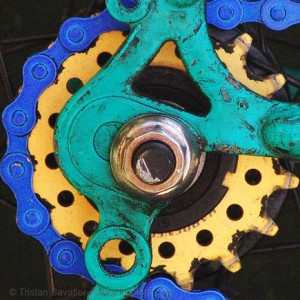While thinking about Dave’s post on shock and awe, I stumbled over this quote which merits a post of its own. It’s from Jack Common, a working class writer from the 1930s (more on him here).
The dark age technique of unlearning is what is needed, and it is not such a strange thing as it seems. We have an acquisitive view of learning as of a thing you add to the personality, this being the opinion proper to an acquisitive society. Yet when you learn to swim you are really escaping from doubt and awkwardness into an innate swimming rhythm which everybody possesses, rather marvellously, whether they use it or not. And queerer than that, there is the case of the recently developed art of cycling. When I took it up, the man who showed me how pointed out that it wasn’t a question of learning to ride, what you had to do was to unlearn the inability to ride. He was perfectly right. It is all there if you can get it.
It’s the concept of unlearning that caught my eye, which runs counter to the suggestion that in times of crisis “the actions that are taken depend on the ideas that are lying around”. I don’t want to start banging the anti-intellectual drum, but maybe the opportunity thrown up by a crisis is precisely the chance to “unlearn the fears and inhibitions by which you are lessened” and reveal the “Eldorado of infinite potentiality”. And it also links into my general uneasiness about the role of ‘experts’. It’s easily done. You read a few books, write a few words, and all of a sudden people are asking you to provide them with the answer. Or worse, you think you have the answer…


1 Comment